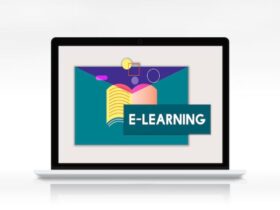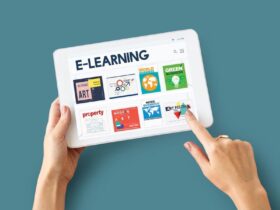Online classes are better due to the convenience and flexibility they offer. With online classes, students can customize their learning, have access to a variety of courses, learn at their own pace, and avoid distractions.
In addition, online learning helps students build technical skills, be more productive, and have a more personalized learning experience. These benefits have led to an increase in the number of students taking online classes. However, online learning may not be favorable for students who struggle with self-discipline and require face-to-face interactions.
We will dive deeper into the advantages and disadvantages of online education and provide a well-rounded analysis of why online classes are becoming increasingly popular.
Advantages Of Online Classes
Taking online classes provides students with a flexible schedule and customized learning, as they can choose courses that suit their needs and interests. It also allows students to improve their technical skills and learn at their own pace, with fewer distractions and in the comfort of their own space.
Flexibility
Online classes offer tremendous flexibility that is unmatched by traditional classroom learning. With online classes, you can take courses from anywhere and at any time, so long as you have access to the internet. You can work at your own pace and set your own schedule, which allows you to balance your other commitments. This is particularly beneficial for working professionals, parents, or students who have other obligations.
Convenience
Online classes are incredibly convenient. You do not have to worry about commuting or finding parking, which can be a challenge in many cities. You can study from the comfort of your own home or any other location that you prefer, which saves you time and money. Online courses also eliminate the need for expensive textbooks, as most course materials are available online.
Customized Learning
Another significant advantage of online classes is the ability to customize your learning experience. You can choose from a wide range of courses and programs that are tailored to your interests and needs. You can also access a variety of resources, including videos, podcasts, and interactive tools that can enhance your learning experience. Additionally, online courses are often designed to cater to different learning styles, ensuring that you get the best possible education.
Overall, the advantages of online classes include flexibility, convenience, and customized learning. These benefits make online learning ideal for students who have other commitments, working professionals, or those who prefer to study at their own pace. With online classes, you can enjoy the benefits of traditional education while having the freedom to study from anywhere in the world.
Benefits Of Online Learning
Online learning offers the advantage of flexibility, convenience, and customized learning, making it a better alternative to traditional in-person classes. With the ability to learn at your own pace, online classes provide fewer distractions and an extensive range of courses to choose from.
Additionally, it builds technical skills, making it a preferred choice for students worldwide.
24/7 Availability
One of the most significant advantages of online learning is that courses are accessible at any time, regardless of the location. The availability of course material and lectures on the web allows students to work at their convenience, whether early in the morning or late at night. In addition, this accessibility of online courses helps students balance their education with work or other responsibilities.
Time-saving
Time-saving is another benefit of online learning. Students do not waste time commuting to a physical classroom, and they don’t have to worry about arriving late to class. With online access, students have more time to complete assignments, engage in discussion forums, and study at their own pace. Furthermore, online learning eliminates the need to take notes during class, freeing up more time to comprehend the material presented in the lectures.
Personalized Learning
Online learning platforms allow students to customize their learning experience. With tools like online quizzes, personalized feedback, and interactive multimedia resources, each student can learn according to their style and pace. Moreover, online learning platforms provide an opportunity for students who might feel shy to participate in regular classroom discussions to express their thoughts without feeling the pressure of their peers.
In conclusion, online learning provides advantages such as 24/7 availability, time savings, and personalized learning experiences. Hence, it is no surprise that thousands of students choose online education every year for their academic and professional development needs.
Effectiveness Of Online Learning
Online learning is more effective than traditional learning due to its flexibility, convenience, customized learning, and fewer distractions. Online classes allow students to build technical skills, study at their own pace, and choose from a variety of courses. With online learning, students have the advantage of being in their own comfort zone and can access lectures at any time, reducing travel time.
Online learning has become increasingly popular over the past few years. With the advancement of technology, it is now possible for students to gain knowledge and obtain academic qualifications from the comfort of their own home. The effectiveness of online learning has been a topic of debate among educators for several years. Let’s explore how online classes are more effective than traditional in-person classes in terms of academic performance and student satisfaction.
Academic Performance
Research has shown that online classes offer several advantages over traditional in-person classes when it comes to academic performance. Students who enroll in online classes have been found to perform better on average than students who attend traditional classes. This may be due to the fact that online classes offer customized learning opportunities that cater to individual student needs. Additionally, online classes require students to be more self-disciplined, which can lead to better academic performance.
Student Satisfaction
Student satisfaction is one of the most important indicators of the effectiveness of online learning. Online classes offer several advantages over traditional in-person classes when it comes to student satisfaction. Online classes provide greater flexibility in terms of scheduling, which is particularly beneficial for students who have other responsibilities such as work or family commitments. In addition, students can learn at their own pace, which allows them to take the time they need to fully understand the material. Students who are satisfied with their online learning experience are more likely to continue their education and achieve their academic goals.
In conclusion, the effectiveness of online learning can be measured in terms of academic performance and student satisfaction. Online classes provide customized learning opportunities that cater to individual student needs, and the flexibility of online classes allows students to learn at their own pace. These advantages lead to better academic performance and increased student satisfaction compared to traditional in-person classes.
Comparison Between Online And Traditional Learning
Online classes are better than traditional learning because they offer flexibility in terms of scheduling and learning pace, a wider range of courses to choose from, and the ability to customize learning to fit individual needs and styles. Additionally, students can build technical skills and learn at their own convenience and comfort.
Comparing online and traditional learning is important to understand which method suits you best. Online learning is becoming increasingly popular due to its convenience and flexibility. However, some students still prefer the structure and social interaction that traditional learning offers. Let’s dive deeper into the pros and cons of each method to help you make an informed decision on which one to choose.
Pros And Cons Of Online Learning
Online learning provides a number of advantages over traditional learning. One of the biggest benefits of online classes is flexibility. With online classes, you can attend lectures and complete assignments at any time and any place as long as you have a reliable internet connection. Another advantage of online classes is the variety of courses available. Online classes offer a wider range of courses than traditional classes. Moreover, online learning provides a customized learning experience. You can learn at your own pace and review difficult concepts as many times as you need to.
However, online learning has its own set of disadvantages. Online classes may lack the face-to-face interaction that traditional classes offer. Moreover, it requires a high level of self-discipline and time management skills to keep up with the coursework, as there are no classmates or teachers to keep you accountable.
Benefits Of In-person Learning
In-person learning fosters active engagement and a structured learning environment. Attending traditional classes provides the opportunity to ask questions and receive immediate feedback. Face-to-face interaction with classmates and instructors can also enhance the learning experience, as it allows for group discussions and collaboration. Furthermore, traditional classes provide a social atmosphere which can lead to networking opportunities with other students and professionals in your field.
However, traditional learning has its own limitations. One of the biggest drawbacks of traditional classes is the lack of flexibility. Students have to attend classes at scheduled times and locations, which can be challenging for those who work full-time or have other commitments. Traditional classes also offer less course variety than online classes, and the class schedule in traditional learning can conflict with personal schedules.
In conclusion, online and traditional learning have their own pros and cons. Choosing the right method depends on your preferences, learning style, and circumstances. It is important to consider the advantages and disadvantages of each method before making a final decision to ensure optimal learning outcomes.
Frequently Asked Questions For Why Online Classes Are Better
Why More Students Are Taking Online Classes?
More students are taking online classes because they offer flexibility, customization, convenience, and a variety of courses. Online classes allow students to learn at their own pace, avoid travel time, and study in the comfort of their own homes. They also help students develop technical skills and manage their time better.
Are Online Classes More Effective?
Online classes can be more effective for some students as they offer flexibility in terms of scheduling and customized learning experiences. Online classes allow learners to learn at their own pace and avoid distractions. However, on average, students may perform worse in the online setting, especially those with weaker academic backgrounds, compared to in-person courses.
Ultimately, the effectiveness of online learning will depend on the student’s learning style and needs.
Are Students Happier With Online Classes?
Online classes offer students benefits such as flexibility, customized learning, and fewer distractions, which can improve their overall experience. However, whether or not students are happier with online classes depends on various factors such as the individual’s personal preferences, learning style, and circumstances.
Is Online Learning Better Than Traditional Learning?
Online learning offers flexibility, convenience, customized learning, and the ability to learn at your own pace. It also provides a variety of courses and technical skills that improve students’ learning experience. However, it lacks face-to-face interactions and may require strong self-discipline.
Traditional learning creates a structured learning environment that fosters active engagement, but it may not offer the same level of flexibility as online learning. Overall, both have their strengths and weaknesses, and it depends on the students’ learning style and preferences.
What Are The Advantages Of Taking Online Classes?
Online classes offer flexibility, convenience, course variety and customized learning, helping students learn at their own pace and improve technical skills while minimizing distractions.
Conclusion
As we have seen throughout this article, online classes offer a wide range of benefits that make them better than traditional classes. One of the most significant advantages is the flexibility and convenience of being able to learn from anywhere and at any time.
Additionally, online classes provide a customized learning experience, course variety, and fewer distractions. Students can also learn technical skills and study at their own pace. Online classes may not be suitable for everyone, but they can be an excellent option for those seeking a more flexible approach to education.












































Leave a Reply